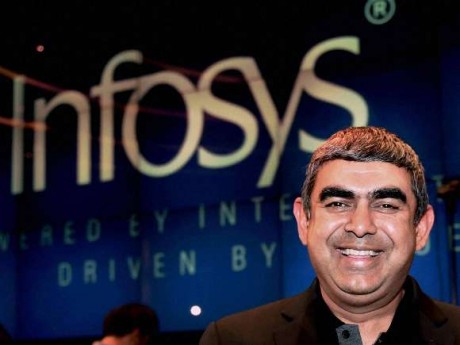Infosys' Sikka promotes 5,000 but will that stop the churn?

It seems to be a pretty good time to be an Infosys employee. Newly minted CEO Vishal Sikka decided to hand out 5,000 promotions in an effort to raise morale in the company, which as you probably know has been taking a beating for the past two years amidst high-profile exits and less-than-stellar numbers.

Apparently, most of these promotions were handed out to software programmers and higher posts, according to Firstpost. Undoubtedly, many of these have been disbursed to line-of-business managers to staunch what has been an unparalleled exodus of the same in the company over the last year or so. So it's no surprise that the company has witnessed an unusually high churn rate in an industry that is no stranger to it in general — from 16.9 percent a year or so ago to 19.5 percent at the end of the latest quarter. Infosys had famously decided not to hand out a pay rise in 2012, adding to the disenchantment of its workers, which co-founder Narayana Murthy tried to remedy when he returned to guide the company the following year by an across-the-board 8 percent pay rise.
Now, Sikka may look like someone who is trying to make up for the company's past shortcomings with the flood of promotions, but as it so happens, this is not the first time this year that Infosys management has elevated people en masse, having promoted 10,000 employees over the past two quarters prior to this latest round and before Sikka got there.
Sikka also launched, along with COO UB Pravin Rao, an employee management exercise with the unfortunate name "Murmurations", where all staff can now share innovative ideas with Sikka — nothing terribly new in the industry (Mindtree, for instance, launched an innovative company-wide, crowd-sourced initiative for new business ideas a few years ago, which I previously wrote about in Business Standard). Still, considering what Infosys has been through in the last year or two, these kinds of initiatives are bound to have some positive impact, as long as they are not just cosmetic actions aimed at boosting employee morale in the short run, but are in fact sustained and well-crafted efforts that look at the long haul. Sikka is a serious customer with a storied reputation for driving innovation, so all bets are that he will be taking this seriously.
But will it be enough to stem the tide of employees leaving the company? Maybe not, if you buy into a survey done by executive search firm MANCER Consulting, which stated that the industry as a whole is going to get walloped by the highest average attrition rate ever, at 21 percent, this year with around one in three junior staff jumping ship.
In other words, churn is a phenomenon that may never go away, no matter how hard you strive to appease your upwardly mobiling staff. As Mark Driscoll, human capital leader, PwC India, observed in this article: "This is a peculiar situation besetting Indian firms or rather BRIC countries." Driscoll said that the average Indian IT employee is just not interested or able to invest in relationships or focus on learning new skills. "The majority of people who are moving jobs have just one to three years of experience. Jumping jobs may help in getting high pay, but what about learning new skills sets?" he asked.
Yes, IT workers are always hungry for a higher pay check, even if it means mindlessly hopping about from one firm to the next. But it isn't always the employee's fault. I would say that poor human resource management at Indian IT firms is equally to blame, where recent entrants have often been viewed and treated as commoditized labour (which they are), instead of potentially valuable assets (which they could become). This results in a cynical, institutionalized method of chasing a bigger pay check. Sometimes you have to give a little to get something back.